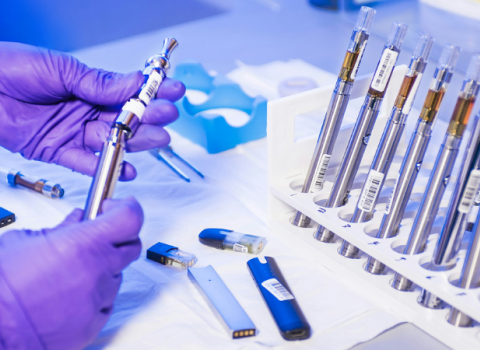
Biopharmaceuticals constitute the bulk of revenues at 65 per cent, followed by the bio services sector. The next rapidly growing sector is agri-biotech, registering 50 per cent growth in the past year, when India overtook China as the largest grower of bollworm-resistant genetically modified cotton.
Bangalore signs up to Victorian values
The state of Victoria in Australia, which aims to make Melbourne one of the top five global biotech locations by 2010, believes universities have a bigger role to play in the advance of biotechnology. “We are in a huge revolution and one of the challenges is to ensure that our universities have the plasticity to take full potential of biotechnology,” said Sir David de Krester, governor of Victoria.
As a fitting finale to the governor’s talk, Deakin University signed an ageement with Bangalore-based Biocon for joint multi-disciplinary research focused on biotechnology and biosciences. Under this agreement, a Deakin Research Institute will be established in Bangalore, and the partners will work on setting up a mammalian cell bioprocessing facility in Australia. Deakin will also undertake research in metabolic diseases for Biocon.
Even as the seventh annual Bangalore Bio trumpeted its successes, experts agreed private investment in Indian biotech still remains elusive. The venture capital community in India, unlike its US counterpart, is risk averse when it comes to funding biotech start-ups, said Biocon’s Shaw. “We need VCs to back risk-ridden innovation,” she added.
For their part venture capitalists show no appetite for early stage funding and favour mid-to-late stage services companies where the revenue stream is defined and assured. The majority of the $150 million investment that went into the biotech sector in 2006-2007 went to services companies.
The federal finance minister promised that New Delhi would step in if “early stage funding really became critical”. But the investor community believes India is still far away from attracting serious venture capital funding to discovery-led research. “In the foreseeable future angel funding in biotech will have to come from government grants and loans,” said Alok Gupta, country head, life sciences and technology, of Mumbai-based Yes Bank.
“Indian biotech does not have enough success stories to attract VCs,” said Gupta, as his bank prepares to launch a $100 million fund for life sciences by the year-end after launching a $100 million agri-biotech fund in May.
Fortunately, Indian biotech has the IT industry as a role model, which after years of rendering services is now entering into product development. Gupta admits that one of the current practices in the Indian biotech industry, and also a safe bet for start-ups, is to have both services and research arms, where revenue from the former funds the latter.
Whatever the evolving model, the industry is trolling for opportunities and Bangalore remains the largest biotech cluster in the country. Of 340 biotech companies in India, 183 are located in the state of Karnataka –137 of them are in the capital, Bangalore. The city is also counting heavily on its new biotech park to incubate companies. The first phase of this park will be inaugurated in July and the next two phases, being built by the California-based Alexandria Real Estate Equities at a cost of $140 million, will be ready in two years.
A joint survey by the Association of Biotech-Led Enterprises and BioSpectrum magazine projects that by 2010, India will have 400 biotech companies, of which around 10 will be public and another 50 will be on a high growth curve.
However the sector sees itself, there were plenty of international delegates keen to do business and build partnerships. They understand that India, along with some other Asian countries, is on the innovation highway. “Biotechnology is a global industry and this is exemplified by what is happening in countries like India, China, and Cuba,” said Sir David Lane, executive director of the Institute of Molecular and Cell Biology, Singapore. Lane, better known for his discovery of the p53 cancer gene, added that the world will soon see “a reverse flow of medical discovery from the East to the West”.
International collaboration
Global partnership was indeed the flavour of the event. From the UK High Commissioner in India to the visiting Governor from Victoria in Australia, all championed research and business collaboration. “For every $27 million of investment in research, we have a spin out in the UK, whereas the comparative figure in the US is $80 million,” said Sir Michael Arthur, the UK High Commissioner in India, stressing that the UK could be India’s gateway to Europe.
Opportunities for Asian and European companies to collaborate are at an all time high. While Western companies are struggling for a better pipeline, Asian companies need access to the Western markets. “Smaller European nations lack infrastructure and service sectors, which could prove important as entry points for Asian biotech companies,” said Crispin Kirkman, managing director of Emerging Technologies Network Agency in Surrey, UK.
Some of the business models suggested by Kirkman and others include: Europe outsourcing to Asia; Asia sourcing intellectual property in Europe; the EU seeking joint ventures with Asian partners for intellectual property; European intellectual property developed in Asia for Asian markets and then taken to the West; and Asian partners accessing EU Framework Programme 7 funding through partnership with European research institutions and industry.
“The barriers remain the same for both European and Indian partners,” said Kirkman. “Lack of knowledge of the foreign market, distance, language, lack of suitable contacts, and perceived mismatch between products of each market are of the issues that concern people on both sides.”
To address this, Amsterdam-based InnoTact Consulting launched its BioPortEurope service at the conference, to provide one-stop-shop solution to help Indian life sciences companies enter the European market.





 A unique international forum for public research organisations and companies to connect their external engagement with strategic interests around their R&D system.
A unique international forum for public research organisations and companies to connect their external engagement with strategic interests around their R&D system.